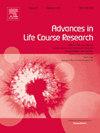宗教信仰和一生中家务的分工
IF 3.4
2区 社会学
Q1 Medicine
引用次数: 0
摘要
越来越多的研究调查了一生中家务分工的变化,但宗教的影响仍未得到充分探讨。本研究利用《世代纵向研究》(1988-2005)的夫妻二对数据,从生命历程的角度,探讨了美国不同性别夫妻的宗教信仰如何影响家务劳动性别差距和个人家务劳动时间的生命历程轨迹。在配偶一方是摩门教徒或妻子是天主教徒的夫妇中,家务劳动的性别差距在一生中有所下降,而在新教(主流或福音派)、犹太教、其他宗教和非宗教夫妇中则保持稳定。这些下降似乎是由于摩门教夫妇一生中妻子做家务的时间减少,而在有天主教妻子的夫妇中,丈夫做家务的时间增加。值得注意的是,在不同的人生阶段,家务性别差异的宗教差异遵循着不同的模式:早期摩门教夫妇和妻子信奉天主教的夫妇之间最初较大的性别差异在中年时趋于一致,并在晚年变得比某些群体小。这项研究通过强调宗教信仰在生活过程中的作用,推进了家务劳动中的性别不平等研究。研究结果为有针对性的政策干预提供了信息,以支持在早期生活中受到过多家务负担影响的妇女。本文章由计算机程序翻译,如有差异,请以英文原文为准。
Religious affiliation and the division of housework over the life course
A growing body of research examines changes in the division of housework over the life course, yet the influence of religion remains underexplored. Using couple dyad data from the Longitudinal Study of Generations (1988–2005) and a life course perspective, this study investigates how wives’ and husbands’ religious affiliations shape life course trajectories of the housework gender gap and individual housework time among different-sex couples in the U.S. Growth curve analyses reveal religious differences in these trajectories. Among couples where either spouse is Mormon or the wife is Catholic, the housework gender gap declined over the life course, whereas it remained stable among Protestant (mainline or evangelical), Jewish, other religious, and nonreligious couples. These declines appear to be driven by reductions in wives’ housework time over the life course among Mormon couples and increases in husbands’ housework contributions over time among couples with Catholic wives. Notably, religious disparities in the housework gender gap followed distinct patterns across life stages: the initially larger gender gap among Mormon couples and couples with Catholic wives in early life converged in midlife and became smaller than in some groups in later life. This study advances research on gender inequality in housework by highlighting the role of religious affiliation over the life course. The findings inform targeted policy interventions to support women disproportionately affected by excessive housework burdens in early life.
求助全文
通过发布文献求助,成功后即可免费获取论文全文。
去求助
来源期刊

Advances in Life Course Research
SOCIAL SCIENCES, INTERDISCIPLINARY-
CiteScore
6.10
自引率
2.90%
发文量
41
期刊介绍:
Advances in Life Course Research publishes articles dealing with various aspects of the human life course. Seeing life course research as an essentially interdisciplinary field of study, it invites and welcomes contributions from anthropology, biosocial science, demography, epidemiology and statistics, gerontology, economics, management and organisation science, policy studies, psychology, research methodology and sociology. Original empirical analyses, theoretical contributions, methodological studies and reviews accessible to a broad set of readers are welcome.
 求助内容:
求助内容: 应助结果提醒方式:
应助结果提醒方式:


